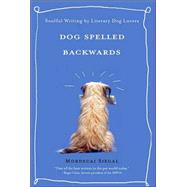
| Acknowledgments | p. xiii |
| Introduction | p. xv |
| Genesis of the dog-eared heart | |
| Halfway to Heaven: The Story of the St. Bernard | p. 3 |
| The Coming of Riquet | p. 15 |
| John Scott's Affectionate Pup | p. 30 |
| Memoirs of a Yellow Dog | p. 33 |
| From A Midsummer Night's Dream | p. 39 |
| A Tribute to the Dog | p. 40 |
| Brave and sacred hearts | |
| Bum: A Brooklyn Dog | p. 45 |
| My Buddy | p. 58 |
| For the Love of a Man | p. 60 |
| Stop Kicking My Dog Around | p. 74 |
| A breed apart | |
| Remarkable Dog | p. 77 |
| Gulliver the Great | p. 80 |
| Old Dog Tray | p. 94 |
| The Westminster Kennel Club | p. 96 |
| Four on the Floor | p. 103 |
| Poetry in motion | |
| Elizabeth Barrett Browning and a Spaniel Named Flush | p. 107 |
| To Flush, My Dog | p. 111 |
| Flush or Faunus | p. 117 |
| From Flush: A Biography: The Back Bedroom | p. 117 |
| To My Dog | p. 121 |
| From A Midsummer Night's Dream | p. 122 |
| The world according to dogs | |
| The Bar Sinister | p. 127 |
| Angel on a Leash | p. 159 |
| Three's Company | p. 160 |
| When I Get to Heaven: Questions from an Anxious Dog | p. 165 |
| Old Blue | p. 167 |
| Love unleashed | |
| Garm-A Hostage | p. 171 |
| The Power of the Dog | p. 188 |
| The Checkers Affair: A Cocker Spaniel, a Speech, and the Political Survival of Richard M. Nixon | p. 190 |
| Another Speech, Another Dog | p. 197 |
| Dog Names of the Great and Not So Great | p. 199 |
| God is coming, look busy | |
| The Soul of Caliban | p. 203 |
| The Barking Dog | p. 217 |
| For Ashley Whippet: A Testimonial | p. 218 |
| A Dog's Best Friend | p. 221 |
| A Prayer for Animals | p. 222 |
| Litter-ature | |
| From Peter Pan: Peter Breaks Through, and The Shadow | p. 225 |
| That Spot | p. 235 |
| Underdog | p. 246 |
| Dandy: The Story of a Dog | p. 246 |
| Heavenly days | |
| The Bonding | p. 255 |
| Going Home | p. 259 |
| To My Dog | p. 261 |
| Enter Tarzan | p. 262 |
| Erica's Song | p. 271 |
| From Old Dogs, Old Friends: Enjoying Your Older Dog: Memories Are Forever, and Grow Old with Me | p. 273 |
| Copyright Acknowledgments | p. 281 |
| Table of Contents provided by Ingram. All Rights Reserved. |
The New copy of this book will include any supplemental materials advertised. Please check the title of the book to determine if it should include any access cards, study guides, lab manuals, CDs, etc.
The Used, Rental and eBook copies of this book are not guaranteed to include any supplemental materials. Typically, only the book itself is included. This is true even if the title states it includes any access cards, study guides, lab manuals, CDs, etc.
Excerpted from Dog Spelled Backwards: Soulful Writing by Literary Dog Lovers
All rights reserved by the original copyright owners. Excerpts are provided for display purposes only and may not be reproduced, reprinted or distributed without the written permission of the publisher.